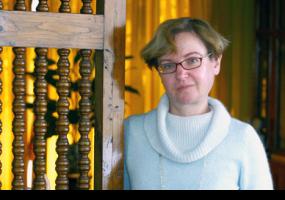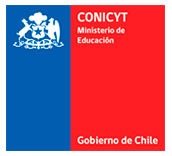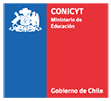Women in Science
Fondecyt 2013: Academic research on socio-political role of the Evangelical Church in Chile
Published 17-05-2013
In order to give more visibility to the evangelical segment resident in Chile, Evguenia Fediakova,en,ACADEMIC OF THE IDEA-USACH LEADERA FONDECYT PROJECT THAT HO seeks to contribute to the reduction of discrimination that is exercised on religious organization,es,Since the nineteenth century the Evangelical Church has marked presence throughout the national territory,es,The constitution of,es,that promulgated the separation between the State and the Catholic Church,es,added to the concept of freedom of worship,es,They erected as key milestones that would allow the increase in the evangelical population in the country,es,Yes in,es,The population recognized the evangelical,es,currently,es,According to the National Population Census of the,es,percent of the population declares to be evangelical,es,Because of this,es, académica del IDEA-USACH lidera proyecto Fondecyt que busca contribuir en la reducción de la discriminación que se ejerce sobre la organización religiosa.
Desde el siglo XIX la Iglesia Evangélica ha marcado presencia a lo largo del territorio nacional. La constitución de 1925 que promulgaba la separación entre el Estado y la Iglesia Católica, sumado al concepto de libertad de culto, se erigieron como hitos claves que permitirían el incremento de la población evangélica en el país.
Si en 1930, menos del 2% de la población se reconocía evangélica, en la actualidad, según el Censo Nacional de Población del 2012, the 16,62 por ciento de la población declara ser evangélica. Debido a esto, The increase in faithful has generated a greater prominence of this sector in society,es,where they have already generated proposals on relevant areas such as education or contingent issues such as de facto unions or homosexual marriage,es,Despite the above,es,The ignorance that exists about this believing sector is broad,es,Many times discriminated against prejudices or erroneous collective imaginary,es,Due to the lack of investigation in this area,es,Phediakova,et,Academic of the Institute of Advanced Studies of the U,es,of Santiago and understood in this matter leads the study “leaving the,es,masses refuge,es,Chilean evangelicals and its civic-social commitment,es,work that will last three years,es, donde ya han generado propuestas sobre áreas relevantes como la educación o temas contingentes como las uniones de hecho o el matrimonio homosexual.
A pesar de lo anterior, es amplio el desconocimiento que existe sobre este sector creyente, muchas veces discriminado a causa de prejuicios o imaginarios colectivos erróneos, debido a la falta de investigación en este ámbito.
 La Dra. Evguenia Fediakova,en,ACADEMIC OF THE IDEA-USACH LEADERA FONDECYT PROJECT THAT HO seeks to contribute to the reduction of discrimination that is exercised on religious organization,es,Since the nineteenth century the Evangelical Church has marked presence throughout the national territory,es,The constitution of,es,that promulgated the separation between the State and the Catholic Church,es,added to the concept of freedom of worship,es,They erected as key milestones that would allow the increase in the evangelical population in the country,es,Yes in,es,The population recognized the evangelical,es,currently,es,According to the National Population Census of the,es,percent of the population declares to be evangelical,es,Because of this,es, académica del Instituto de Estudios Avanzados de la U. de Santiago y entendida en esta materia lidera el estudio “Saliendo del “refugio de las masas”: evangélicos chilenos y su compromiso cívico-social, 1990-2010”, trabajo que tendrá una duración de tres años.
La Dra. Evguenia Fediakova,en,ACADEMIC OF THE IDEA-USACH LEADERA FONDECYT PROJECT THAT HO seeks to contribute to the reduction of discrimination that is exercised on religious organization,es,Since the nineteenth century the Evangelical Church has marked presence throughout the national territory,es,The constitution of,es,that promulgated the separation between the State and the Catholic Church,es,added to the concept of freedom of worship,es,They erected as key milestones that would allow the increase in the evangelical population in the country,es,Yes in,es,The population recognized the evangelical,es,currently,es,According to the National Population Census of the,es,percent of the population declares to be evangelical,es,Because of this,es, académica del Instituto de Estudios Avanzados de la U. de Santiago y entendida en esta materia lidera el estudio “Saliendo del “refugio de las masas”: evangélicos chilenos y su compromiso cívico-social, 1990-2010”, trabajo que tendrá una duración de tres años.
The project is the continuation of a long stage of work and research that the expert develops more than,es,essentially motivated by the ignorance that Chilean society has on the evangelical population of the country,es,"The issue of evangelicals in society,es,His participation in democracy,es,It continues to be a very little studied topic,es,Some stereotypes and prejudices are still maintained in this religious segment ”,es,Fediakova points out,es,who with his research seeks to diversify the image of evangelicals in Chile,es,since they are known as a conservative and anti -democratic branch,es,There are ecumenical evangelical sectors that during the time of the military dictatorship,es 15 years old, motivada esencialmente por el desconocimiento que tiene la sociedad chilena sobre la población evangélica del país.
“El tema de los evangélicos en la sociedad, su participación en la democracia, continúa siendo un tema muy poco estudiado. Todavía se mantienen algunos estereotipos y prejuicios en cuanto a este segmento religioso”, señala Fediakova, quien con su investigación busca diversificar la imagen que se tiene de los Evangélicos en Chile, ya que se conocen como una rama conservadora y antidemocrática. However, existen sectores evangélicos ecuménicos que durante la época de la dictadura militar, They collaborated with the Vicaría de la Solidaridad,es,contributing to the recovery of democracy,es,Among the objectives set by the researcher,es,It is found to distinguish whether the growing religious diversity that occurs in the country can produce greater tolerance and acceptance within society,es,leaving aside the discriminations that are exercised on various religious sectors,es,“It may be that segmentation occurs in the different social and religious groups in Chile,es,We must study what happens with the modification of various religious actors,es,What consequences does it have,es,Will there be greater pluralism,es,tolerance,es,diversification,es,Or on the contrary,es,Will we see isolation,es,fundamentalism,pt,segmentism,eo,That is one of the problems we want to solve ",es, aportando en la recuperación de democracia.
Entre los objetivos que se fija la investigadora, se encuentra distinguir si la creciente diversidad religiosa que se da en el país puede producir mayor tolerancia y aceptación dentro de la sociedad, dejando de lado las discriminaciones que se ejercen sobre diversos sectores religiosos.
“Puede ser que se produzca segmentación en los distintos grupos sociales y religiosos en Chile. Por lo mismo, debemos estudiar qué sucede con la modificación de diversos actores religiosos. ¿Qué consecuencias tiene?, ¿habrá mayor pluralismo, tolerancia, diversificación? O al contrario, ¿veremos aislamiento, fundamentalismo, segmentismo? Ese es uno de los problemas que queremos resolver”, declare,,es,We believe that the scientific community is a relevant actor and has an irreplaceable role in the transformations that the present demands,,es,more than ever we are driven by the principle of science at the service of the country,,es,It is a time of crisis and challenges,,es,Knowledge and scientific research,,es,able to catch problems,,es,get evidence and build solutions,,es,they turn out today,,es,specially required,,es,Transdisciplinary research,,gl,with special emphasis on Social Sciences and Humanities,,es,It is called to continue contributing elements for a well-founded critical understanding of the present,,es,attending to its origins and potentials,,es,We condemn violence in all its forms and advocate constructive and informed dialogue,,es.
In the theoretical and practical construction that Fediakova intends to elaborate,es,It is accompanied by sociologists Vicente Espinoza and Víctor Fernández,es,coinvestigadores,en,who will be in charge of preparing interviews,es,Support files and correspondences,es,Unraveling,es,New practices of the religious sector propitiated by evangelical youths that make their way to various universities,es,where without losing your identity,es,They organize much more striking and less hierarchical meetings,es,Highlights that “research,es,For our university it is really novel,es,In the sense that it is dedicated to the research of groups that have never been studied in Chile or Latin America,es, la acompañan los sociólogos Vicente Espinoza y Víctor Fernández, coinvestigadores, quienes se encargarán de elaborar entrevistas, apoyar en la revisión de archivos y correspondencias. Desentrañando, de esta manera, nuevas prácticas del sector religioso propiciados por juventudes evangélicas que se abren paso en diversas universidades, donde sin perder su identidad, organizan encuentros mucho más llamativos y menos jerarquizados.
Finally, Fediakova, resalta que “la investigación, para nuestra Universidad es realmente novedosa, en el sentido que se dedica a la investigación de grupos que nunca han sido estudiados en Chile o América Latina, incorporates new theoretical and methodological aspects to this area of knowledge,es,strengthening much more commitment to democracy and debate on tolerance,es,Ethics,es,gender discrimination,es,By race or marriage state,es,In this aspect it is very important to find how in society you can live without discriminating and without harming anyone in their spiritual searches ”,es,Research Vice -Rectory,es, fortaleciendo mucho más el compromiso con la democracia y el debate sobre la tolerancia, la ética, la discriminación por género, por raza o estado matrimonial. En este aspecto es muy importante buscar cómo en la sociedad se puede convivir sin discriminar y sin perjudicar a nadie en sus búsquedas espirituales”.
Source: Vicerrectoría de Investigación, Desarrollo e Innovación / USACH



